Anyone who conducts an argument by appealing to authority is not using his intelligence; he is just using his memory
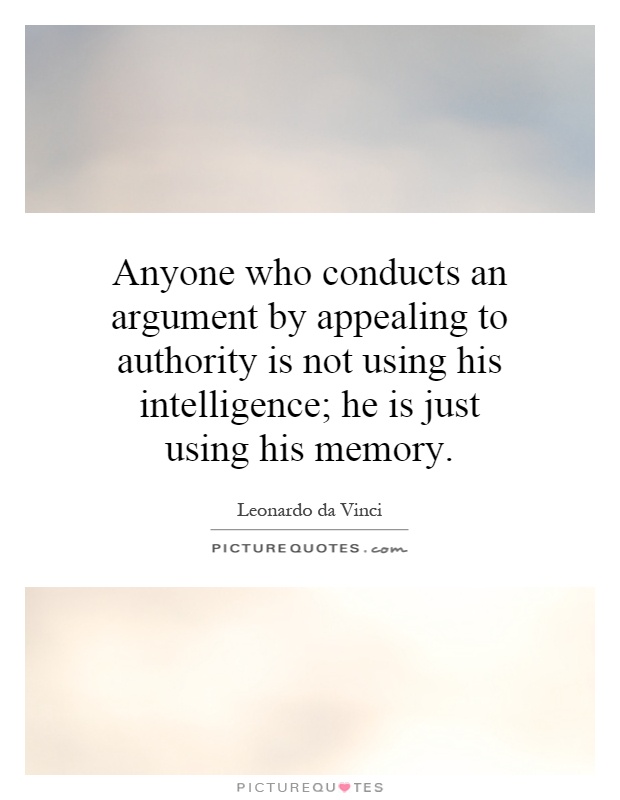
Anyone who conducts an argument by appealing to authority is not using his intelligence; he is just using his memory
Leonardo da Vinci is widely regarded as one of the greatest minds in human history. His contributions to art, science, and engineering have left an indelible mark on the world. However, da Vinci was not just a talented artist and inventor; he was also a critical thinker who valued reason and evidence over blind faith or appeals to authority.The quote, “Anyone who conducts an argument by appealing to authority is not using his intelligence; he is just using his memory,” perfectly encapsulates da Vinci’s approach to knowledge and understanding. Da Vinci was known for his insatiable curiosity and his relentless pursuit of truth. He did not simply accept the teachings of others or rely on the authority of established experts. Instead, he sought to investigate and experiment for himself, drawing his own conclusions based on observation and evidence.
Da Vinci’s famous notebooks are a testament to his commitment to independent thinking and intellectual rigor. In these notebooks, he recorded his observations, hypotheses, and experiments, often challenging conventional wisdom and pushing the boundaries of human knowledge. Da Vinci’s approach to learning was not passive or deferential; it was active, critical, and creative.
One of da Vinci’s most famous works, the Vitruvian Man, is a perfect example of his commitment to reason and evidence. In this drawing, da Vinci sought to understand the proportions of the human body based on careful observation and measurement. He did not simply rely on the teachings of ancient authorities like Vitruvius; instead, he conducted his own investigations and arrived at his own conclusions.

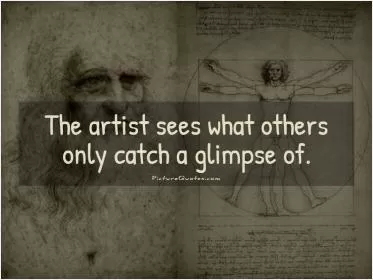
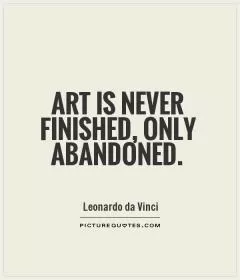

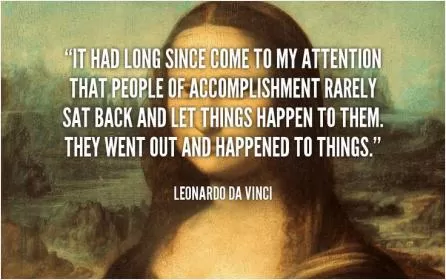



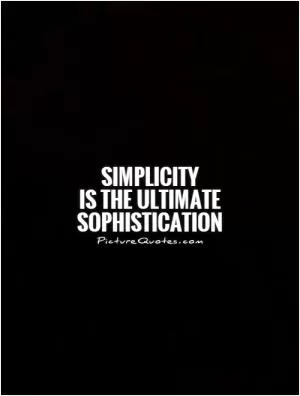
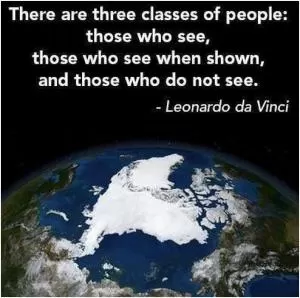
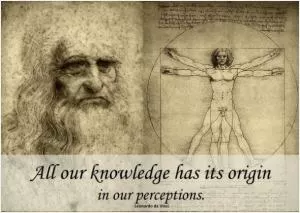

 Friendship Quotes
Friendship Quotes Love Quotes
Love Quotes Life Quotes
Life Quotes Funny Quotes
Funny Quotes Motivational Quotes
Motivational Quotes Inspirational Quotes
Inspirational Quotes